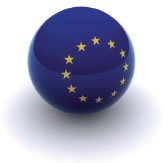Using expert witnesses more efficiently
With cost and timing issues a key factor for parties’ in litigation and arbitration, the efficient use
of expert financial witnesses can have a positive impact on both, insists Fernando Cuñado, a
Director in KPMG’s Madrid-based EMEA Forensic Dispute Advisory Services Group
como factores
fundamentales en el uso
del arbitraje por las partes,
el uso eficiente de los
peritos puede tener un
impacto positivo en ambos,
dice Fernando Cuñado,
Director dentro del grupo
de EMEA Forensic Dispute
Advisory Service.
“The growing complexity of business
relations and of accounting principles to be
applied in the valuation of more
sophisticated structures demands ever
more detailed analysis when disputes
arise. But the involvement of independent
experts from the outset can help to focus
strategies – the most significant legal issues
may not always reflect the most important
financial questions. We are getting much
more involved, as Independent Experts, in
early case assessments providing advising
on the economic approach to follow and
potential strengths within the quantum”
The quality of the information available
to experts, and thus their analysis, can also
be maximised by establishing a clear
relationship with the party itself, always
bearing in mind the Independence
requirements, which should prevail in any
case, says Cuñado. The best litigation or
arbitration results often result from when
there is a coordinated point of reference,
to someone with the insight and authority
to access information that may be stored in
the deepest ledgers.
“This also extends to the relationship
with external law firms, to ensure
the legal strategy matches the
demonstrable facts. It may not always be
the best advice to maximise a financial
claim. Some issues may be clear others
much less so, and it is the grey areas that
are always the points of most contention.”
Within Spain, he notes that beyond
dispute resolution methods such as
mediation it remains uncommon for
experts to agree facts from the outset. But
it can be useful to ensure that experts are
starting their analysis from the same
foundations.
“What can be significant, where there is a
strong divergence of opinion, is to test the
assumptions on which experts are working
– this is something arbitration panels are
particularly adept at. Assessments of
quantum may prove wildly different
because experts are using the same tools but
starting from different points.”
While a judge or arbitration panel may
occasionally seek an independent third
expert opinion, it remains uncommon for
parties to share witnesses. Indeed, an
arbitration may allow experts to even
challenge each others’ findings, says
Cuñado.
“The scale of many disputes, the stakes
involved, and divergent opinions,
means that parties still prefer to appoint
their own experts, rather than
relying on the one-shot which might be
provided by a jointly appointed
expert. Conflict of interests may also get in
the way. In arbitration particularly, certain
issues may ultimately be agreed but when
it would be wrong in an expert
determination process is to target a middle
position from the outset.”












